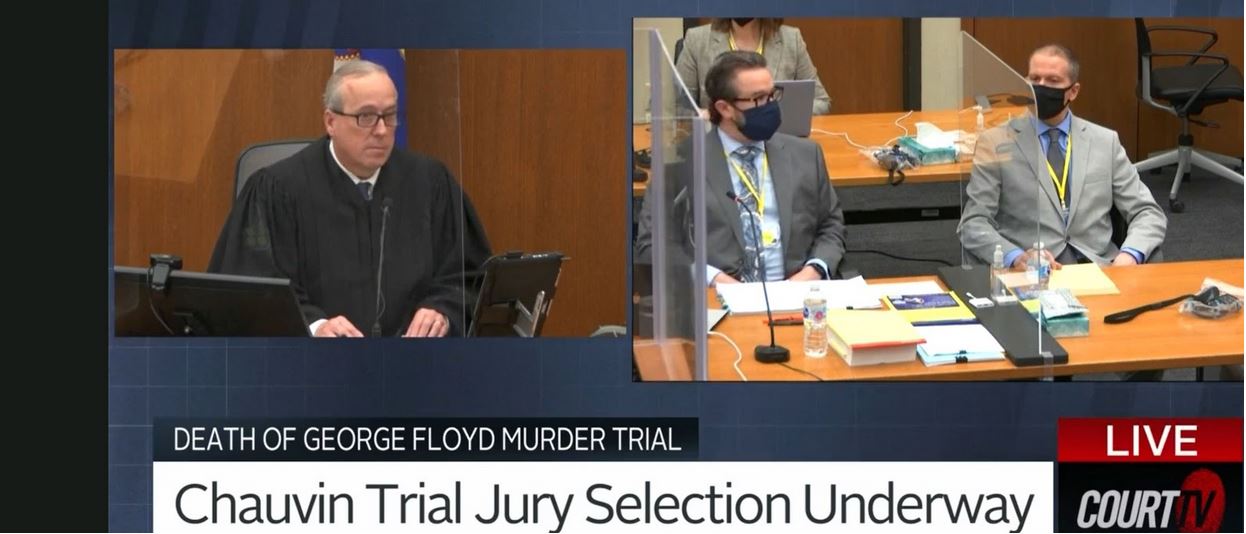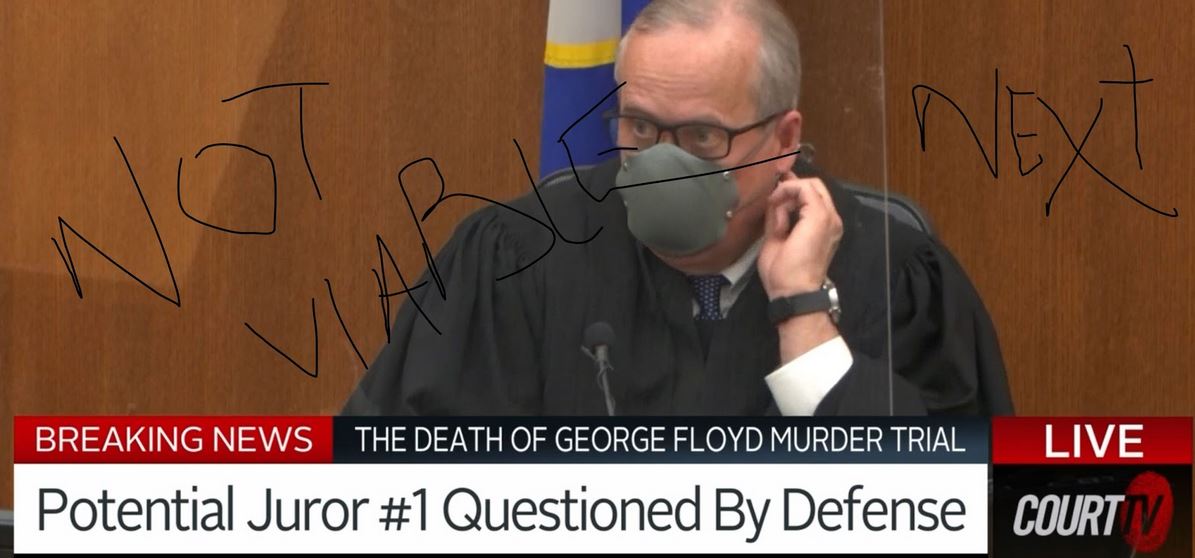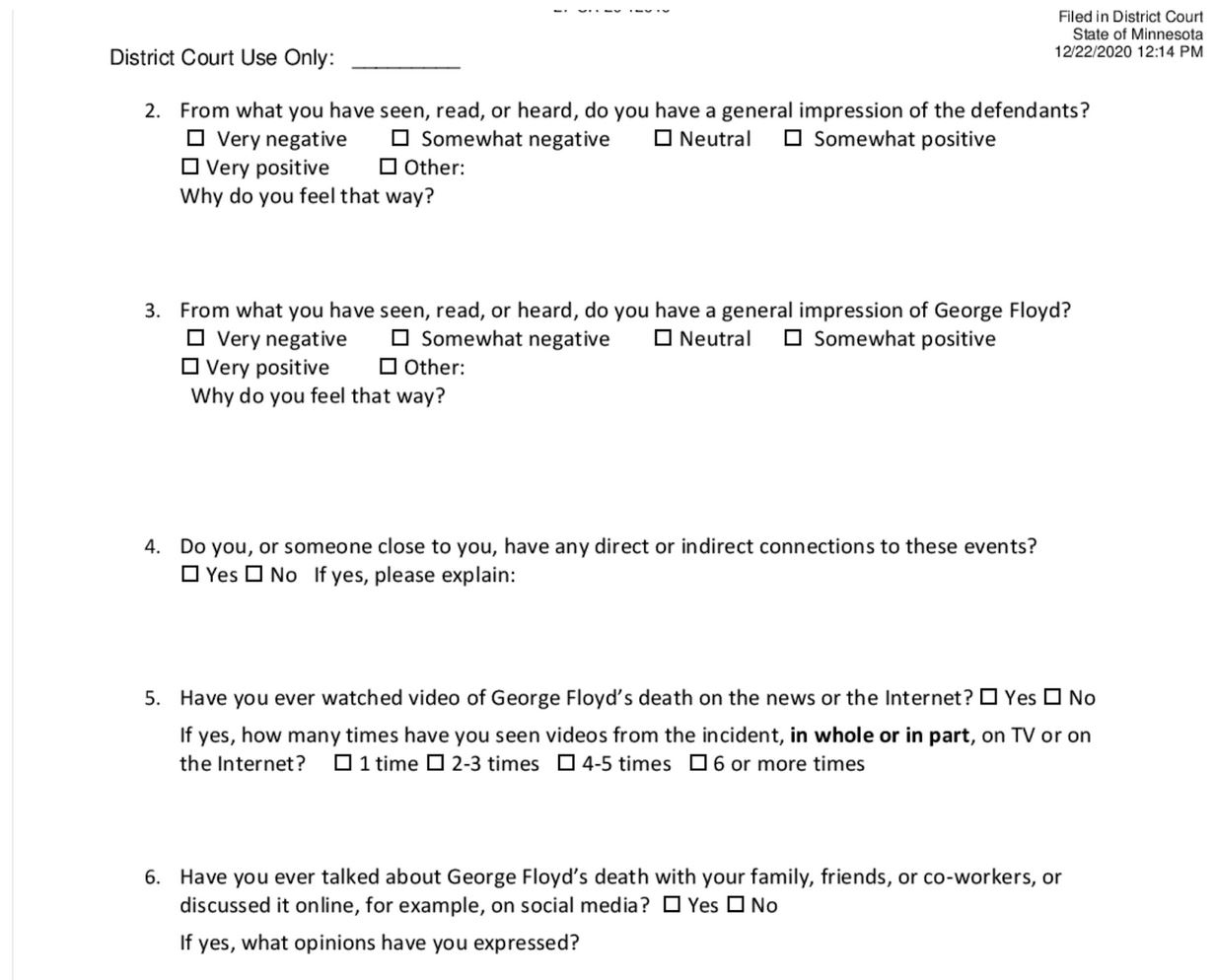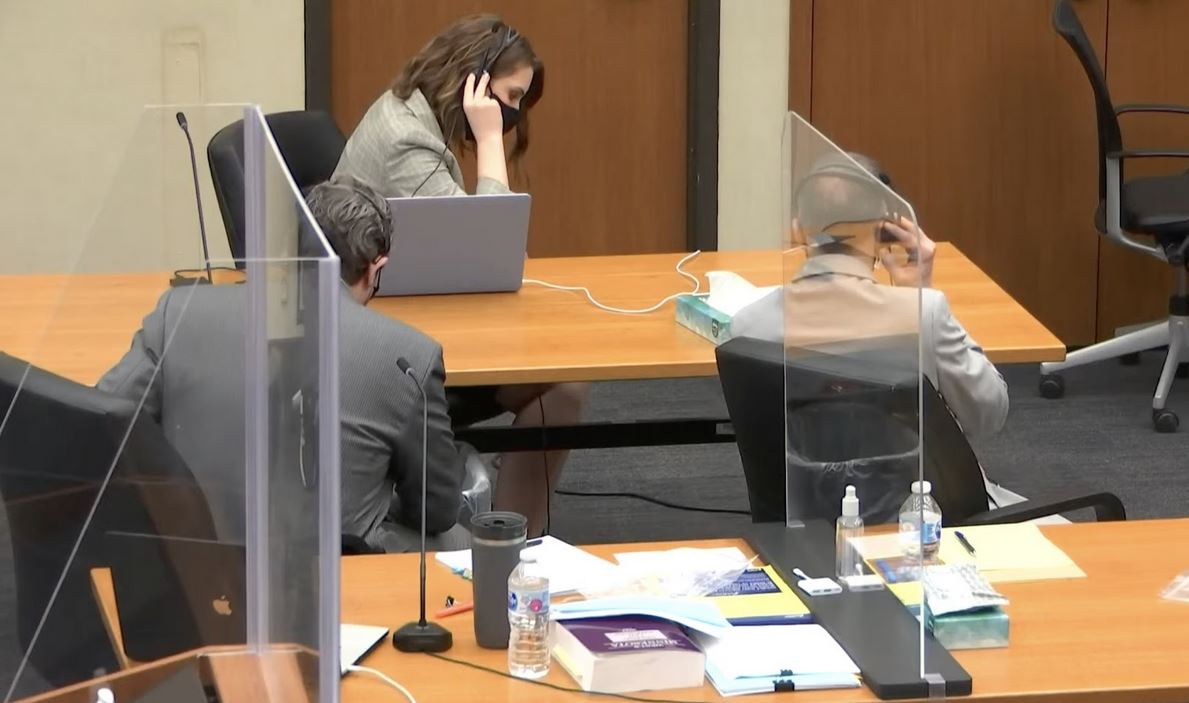DAY 2 – Tuesday, March 9th
After a false start on Monday, juror selection finally began the following day for the George Floyd / Derek Chauvin case. After an entire day of proceedings, six jurors were rejected and three jurors were seated: Juror #2 – a white male chemist, Juror #9, a black female and diabetic, and Juror #19, a white male who makes a living as an auditor.
Twelve jurors (and two alternates) must ultimately set aside what they saw in the George Floyd case. Can lawyers really find an impartial jury in the three weeks allotted before the probable start date on March 29th? Many agree you would need to try this case on Mars to find someone who hasn’t heard about George Floyd and formed an opinion.
Chauvin’s attorney Eric Nelson had requested a change of venue, arguing that media coverage of “riots and looting” was so intense that “the Twin Cities jury pools have surely been tainted and a fair trial cannot be had in the Twin Cities area.” The judge disagreed and denied his request.
Selecting a jury is seemingly a painstaking process often dependent on instinct, common sense, and emotional intelligence.
Please follow Maryam Henein on Twitter
You can support her work on Patreon
Follow Maryam on Telegram and Gab
“Jury selection is going to be very long,” said Benjamin Crump, the Floyd family attorney. He said he believes “you can get people who will commit to being honest, and that’s all you can ever ask for.”
Hennepin County District Judge Peter Cahill, Special Attorney for the State Steven Schleicher, and Nelson asked prospective jurors several questions, including: Have you seen the viral video of George Floyd? Are you able to set aside prior knowledge of the case? How do they feel about the Black Lives Matter movement?
In some cases, it seemed that certain jurors should have been dismissed instantly such as Juror #1 who didn’t speak English very well and didn’t even understand the meaning of the word ‘conflict.’ She also had already formed an opinion on Derek based on the viral video.
Chauvin, a former Minneapolis police officer, is charged with second-degree murder and manslaughter. After an appeals court ruling Friday, he could be charged with third-degree murder, too. Three other former cops, set to go on trial in August 2021, are charged with aiding and abetting.
A masked Chauvin dressed in a light gray suit, a blue shirt, and a dark tie sat alongside his lawyer Eric Nelson as the court, replete with hand sanitizers, wipes, and social distancing began screening potential jurors. He was seen writing enthusiastically in a notebook throughout the day.
Jury Duty
While CourtTV broadcast jurors’ voices, cameras did not show their faces. For their safety, jurors were referred to by numbers, though their names may be made public afterward.
Here are some highlights from jurors.
Seated Juror #2: “I consider myself a pretty logical person … I rely on facts and logic and what’s in front of me. Opinion and facts are important distinctions for me,” said the chosen juror, who said he visited the intersection of 38th and Chicago where Floyd was killed because he was interested in moving to the area with his fiancée. “I think all lives matter equally.” He said the Blue Lives Matter message among police advocates is an unnecessary counter viewpoint. Surprisingly, he had not viewed the video of Floyd’s death.
Juror #3 just testified that she has strong feelings on the George Floyd case and couldn’t be impartial.
Juror #9 said he’s in “client services” and would stick to his opinion essentially – this was a reason for dismissal. This juror was also on a jury five years ago.
Juror #10 asked not to serve on the George Floyd jury due to safety concerns of becoming a target.
Prosecutors used their first peremptory strike on Juror #8, an Air Force veteran and grandfather who said he would judge the George Floyd case based on the facts.
If attorneys find a reason to eliminate a juror, the judge must approve that reason. Otherwise, lawyers can use what’s known as a “peremptory challenge” to cut someone without providing a reason. The defense will have 15 peremptory challenges in the Chauvin case and the prosecution will have nine. The prosecution has already used one and the defense has used two.
Juror #17: “It was my civil service to fill out the survey and serve as a juror if selected. I was surprised about the gating and protective things in place around the courthouse because I haven’t been downtown in a long time … No concerns about my personal safety or my family, COVID.”
On Monday, attorneys struck 16 potential jurors from the pool based solely on their answers to the questionnaire.
Looking For Impartiality In Hennepin Via Questionnaires
The court mailed prospective jurors an unusually detailed 16-page questionnaire last year asking them what they know about Floyd’s death and asking for their opinions on the Black Lives Matter movement.
At the top of the document is a stern warning: “From this day forward, DO NOT read or intentionally view anything about these cases or do any investigation or research related to these cases.”
The questionnaire includes sections on media habits, police contacts, and opinions on the criminal justice system. And it asks whether the potential juror has struggled with drug addiction. A toxicology report showed fentanyl and methamphetamine in Floyd’s system, and the defense is likely to argue he died from a drug overdose.
The questionnaire asks jurors if they or someone close to them participated in “any of the demonstrations or marches against police brutality.” If so, did they “carry a sign? What did it say?”
Other questions include whether the potential jurors or someone they know was injured or suffered property damage during the protests.
In bold, it also reads: “No matter what you have heard or seen about this case, and no matter what opinions you might have formed, can you put all of that aside and decide this case only on the evidence you receive in court, follow the law, and decide the case in a fair and impartial manner?”
Jury selection continues on March 10th.
Normally, sidebars are up at the bench, but in light of the live broadcast and COVID, when the judge holds sidebars with counsel (and Chauvin), they put on headsets to talk to the judge and each other, turn away from the cameras/mics, and the pool broadcast audio cuts out.
Read Part 1
Become a Patron!
Or support us at SubscribeStar
Donate cryptocurrency HERE
Subscribe to Activist Post for truth, peace, and freedom news. Follow us on Telegram, SoMee, HIVE, Flote, Minds, MeWe, Twitter, Gab and Ruqqus.
Provide, Protect and Profit from what’s coming! Get a free issue of Counter Markets today.





Be the first to comment on "Three Jurors Now Seated For Derek Chauvin Trial"